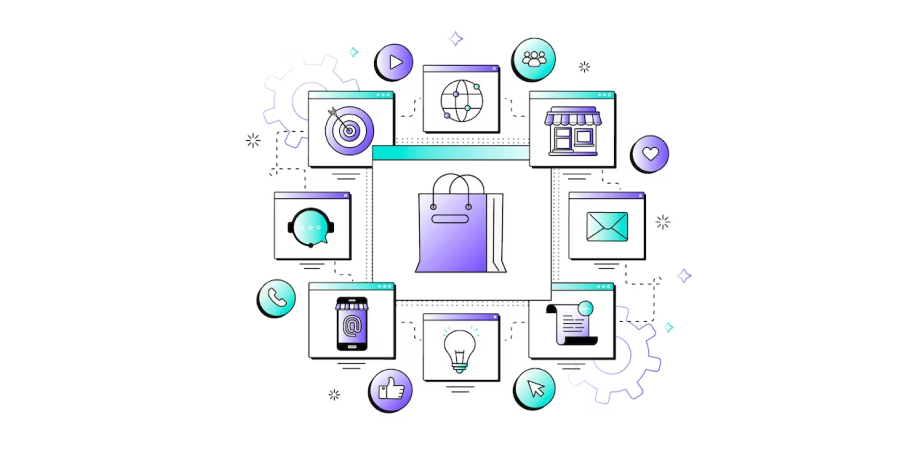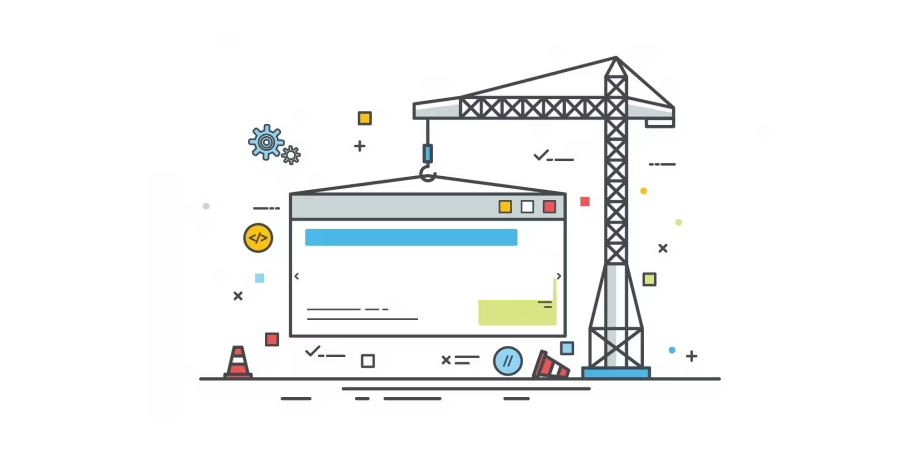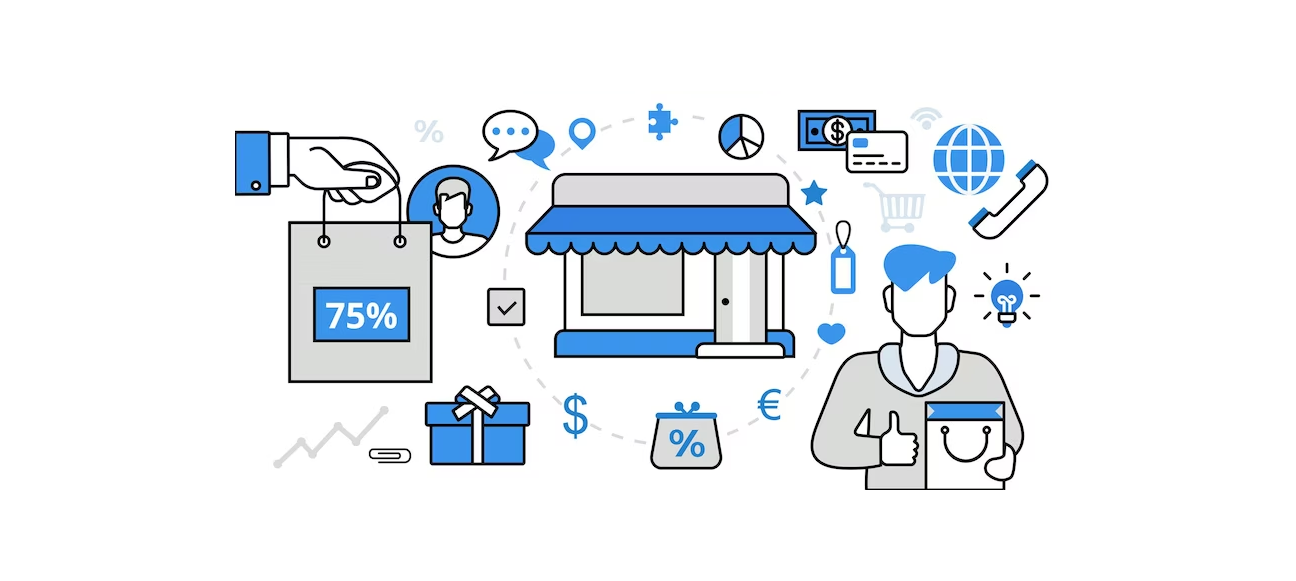Introduction
In the current digital age, having an online store has become more important than ever before. With the rise of ecommerce, businesses are increasingly turning to ecommerce website builders to create their online stores. Ecommerce website builders offer a user-friendly and affordable way to create a professional and functional online store, without the need for any technical expertise.
However, with so many ecommerce website builders available in the market, choosing the right one can be a daunting task. In this article, we will be discussing the top ecommerce website builders that can help you create your business website with ease. We will also be comparing their features, pricing, and pros and cons to help you make an informed decision. So, let’s dive in and explore the world of ecommerce website builders!
Importance of Ecommerce Website Builders
Ecommerce website builders have become essential for businesses looking to establish an online presence and sell their products or services. They offer user-friendly interfaces, cost-effective solutions, customizable options, mobile optimization, and payment integration. These features make it convenient and affordable for businesses to create an online store and reach a global audience. In short, ecommerce website builders provide a valuable tool for businesses looking to expand their reach and increase sales.
Key Features of Ecommerce Website Builders

Ecommerce website builders come with a wide range of features that make it easy for businesses to create and manage an online store. Some of the key features of ecommerce website builders include:
1 - User-friendly interface:Ecommerce website builders have a user-friendly interface that makes it easy for businesses to create their online store without any technical skills or knowledge.
2 - Customizable options: Ecommerce website builders offer a variety of customizable options, including templates, themes, and design elements, allowing businesses to create a unique online store that reflects their brand.
3 - Mobile optimization: With the growing use of mobile devices, ecommerce website builders offer mobile optimization features that ensure that online stores are easily accessible and user-friendly on smartphones and tablets.
4 - Payment integration: Ecommerce website builders integrate with payment gateways to enable businesses to accept payments from customers securely.
5 - Inventory management: Ecommerce website builders provide inventory management tools that help businesses keep track of their products and ensure that their online store is always up-to-date.
6 - Marketing tools: Ecommerce website builders offer marketing tools, such as email marketing and SEO optimization, that help businesses increase traffic to their online store and improve sales.
In summary, ecommerce website builders offer a wide range of features that make it easy for businesses to create and manage an online store, making it an essential tool for businesses looking to establish an online presence and increase sales.
Top Ecommerce Website Builders

There are various ecommerce website builders available in the market, each with their own unique features and benefits. Here are the top ecommerce website builders to consider:
- soopr
- WooCommerce
- BigCommerce
- Magento
- Squarespace
- Wix
- Volusion
- 3dcart
- Weebly
- Shopify
These website builders offer a range of pricing plans, customization options, and features to help you create a professional-looking online store. It's important to consider your specific needs and budget when selecting an ecommerce website builder.
Comparison of Top Ecommerce Website Builders
Here is a comparison of the top ecommerce website builders:
1 - soopr:
Pros: Easy-to-use, powerful ecommerce tools, great customer support, mobile optimization, and a variety of integrations and apps.
Cons: Don't have domain and hosting services.
2 - WooCommerce:
Pros: Offers complete control over your online store, integrates with WordPress, extensive customization options, and powerful features for managing products and orders.
Cons: Requires some technical knowledge, limited support options, and additional costs for plugins and extensions.
3 - BigCommerce:
Pros: Robust features for large-scale ecommerce, customizable templates, and easy-to-use interface.
Cons: More expensive pricing plans, limited free themes, and limited customization options for templates.
4 - Magento:
Pros: Flexible and scalable, powerful features for managing large inventories, and customizable options.
Cons:Requires technical knowledge, expensive pricing for enterprise plans, and limited support options.
5 - Squarespace:
Pros: Easy-to-use, visually appealing templates, and mobile optimization.
Cons: Limited ecommerce features, transaction fees for certain pricing plans, and limited payment options.
6 - Wix:
Pros:User-friendly, customizable templates, and affordable pricing options.
Cons:Limited ecommerce features, transaction fees for certain pricing plans, and limited payment options.
7 - Volusion:
Pros: Easy-to-use, responsive templates, and powerful ecommerce features.
Cons: Expensive pricing plans, limited free themes, and additional fees for advanced features.
8 - 3dcart:
Pros: Feature-rich ecommerce platform, customizable templates, and affordable pricing options.
Cons: Limited design options, some features require additional fees, and limited integrations.
9 - Weebly:
Pros: User-friendly, mobile optimization, and affordable pricing options.
Cons:Limited ecommerce features, transaction fees for certain pricing plans, and limited payment options.
10 - Shopify:
Pros: Easy-to-use, powerful ecommerce tools, great customer support, mobile optimization, and a variety of integrations and apps.
Cons:Pricing can be expensive, limited customization options for themes.
When selecting an ecommerce website builder, consider your specific needs and budget, as well as the level of technical expertise required to use the platform.
Conclusion:
In conclusion, choosing the right ecommerce website builder is crucial for the success of your online business. Each of the top ecommerce website builders mentioned above comes with its own set of features and benefits. Consider your business needs, budget, and technical skills before making a final decision. By using a reliable ecommerce website builder, you can create an online store that is visually appealing, user-friendly, and equipped with all the necessary features to attract and retain customers. With the right ecommerce website builder, building your online store can be an easy and enjoyable process.





